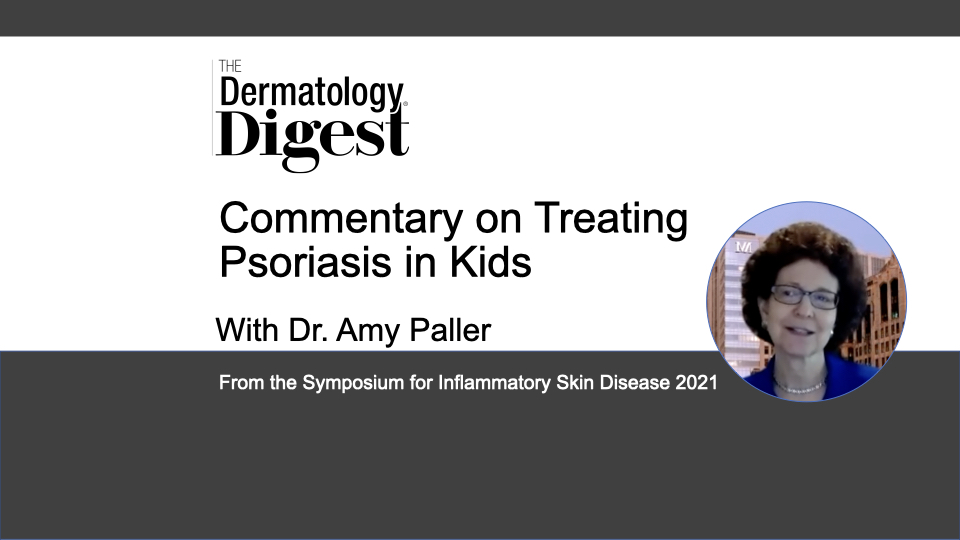Dr. Amy Paller discusses the knowns and unknowns of the disease process, risk factors, and therapies for pediatric psoriasis.
Amy Paller, MD, is Professor and Chair of Dermatology at Northwestern, Chicago, Ill., and Professor of Pediatrics at the Robert H. Lurie Children’s Hospital of Chicago.
“There’s a huge gap in knowledge about pediatric psoriasis because pretty much anything we know about psoriasis comes from studies in adults in terms of understanding the underlying mechanism,” says Amy Paller, MD. “And all of the medications that we use now—and the way that we use them—are strictly taken from studies that have been done in adults without, in general, testing them in children.”
In her presentation, “Treating Psoriasis in Kids,” at the 2021 Symposium for Inflammatory Skin Disease, Dr. Paller discussed pediatric psoriasis in terms of the current understanding of disease process and risk factors, and therapies.
“Psoriasis does affect children. In fact, about one-third of all adults had their psoriasis start during childhood. And we can see a somewhat linear increase over time with most cases starting during adolescence. We also know that there’s a big need to treat and treat appropriately because psoriasis plays a major role in quality of life.”
While the underlying mechanism of psoriasis in children is not well understood, research has looked at potential comorbidities based on those observed in adults, in particular the effects of psoriasis on cardiovascular metabolic functioning. According to Dr. Paller, there is some soft evidence of metabolic disease in children. The biggest known risks, however, are inflammatory bowel disease and obesity.
“Very often, regardless of severity, including after adjustment for body mass index, we may not see hyperlipidemia, but we see these abnormalities in lipid functions. We also know that the association with obesity probably is not because of the psoriasis but rather the opposite: that psoriasis is a comorbidity of obesity in children because in studies more than 90% had their obesity at least two years before the onset of the psoriasis, have it at the time of the psoriasis, and still have it two years after.”
In terms of treatment for pediatric psoriasis, Dr. Paller says, there hasn’t been much clinical research.
“Again we’ve largely just adopted in the pediatric world what’s been done in adults.”
While there are studies currently underway looking at vitamin D analogue, including combinations with steroids, biologics hold the most promise. Several are now FDA approved for use in children ages 6 and older, including etanercept, ustekinumab, and most recently secukinumab
“Primarily what I talked about [at the Symposium for Inflammatory Skin Disease] is where we’ve come with respect to some of the systemic agents… some of them have available for years in adults before they were finally approved by the FDA, but we’re getting there.”
While methotrexate still has an important place in the dermatologist’s armamentarium (it costs less and doesn’t require a shot), says Dr. Paller, it takes longer and isn’t as effective as the biologics.
“One of the fantastic things about the biologics is how incredibly effective they are.”


